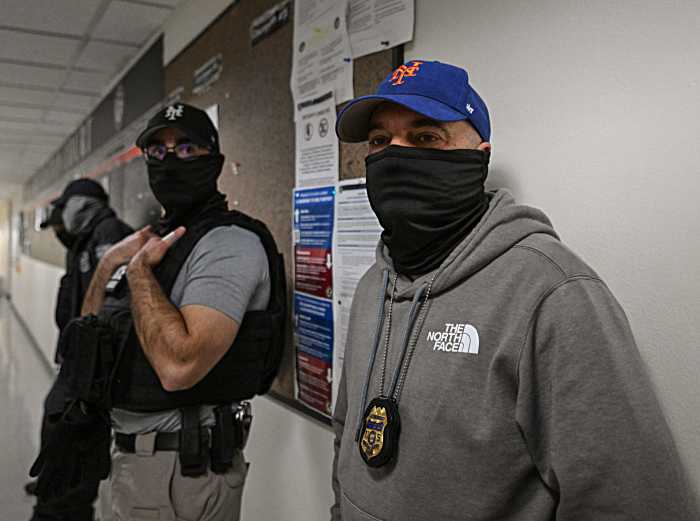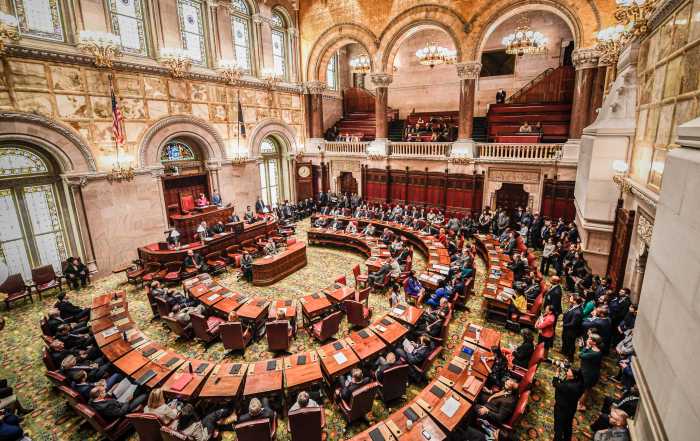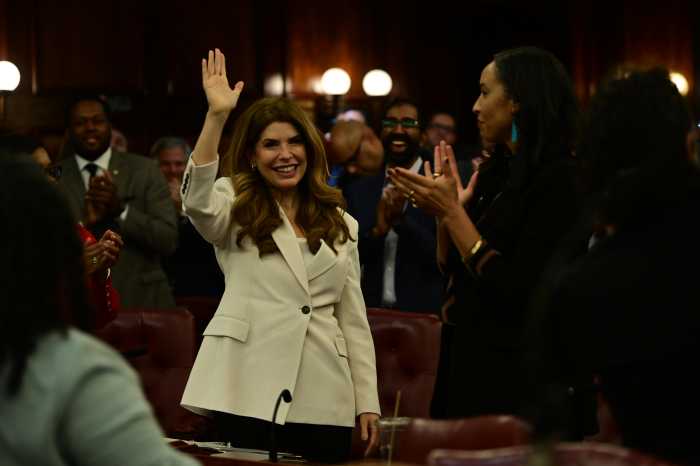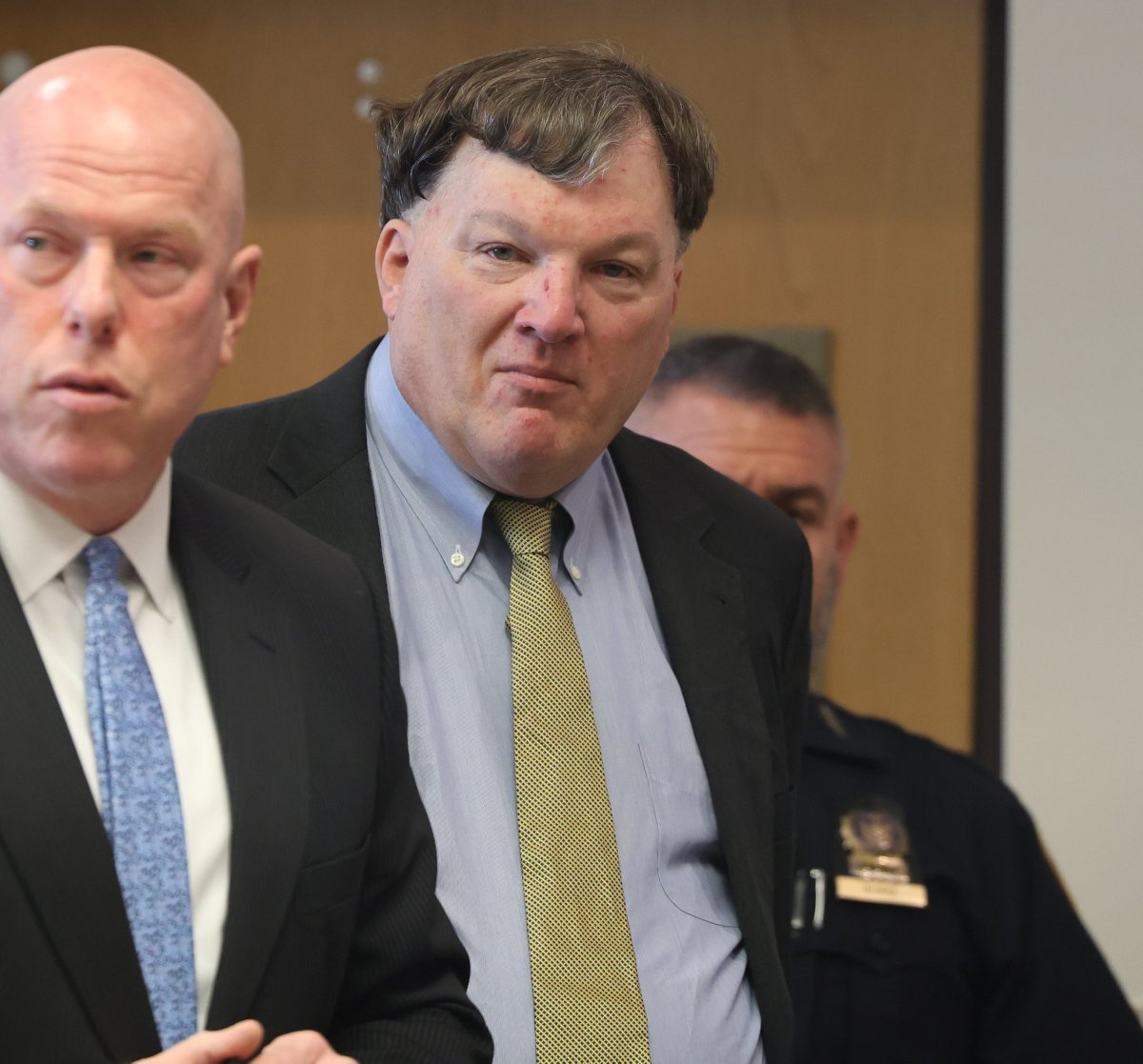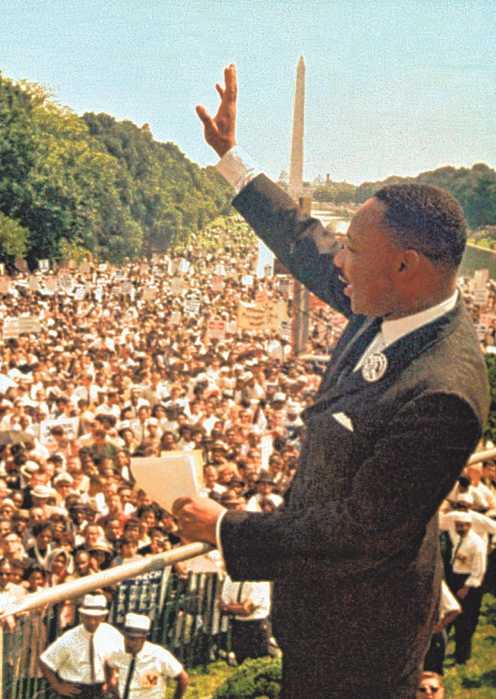NYPD Commissioner James O’Neill made a difficult but correct decision on Monday when he fired Officer Daniel Pantaleo.
In the picture O’Neill painted of that tragic day five years ago when Pantaleo’s takedown of Eric Garner resulted in the death of the Staten Island man, it’s clear mistakes were made by both men. Garner, who was selling loose cigarettes, shouldn’t have resisted arrest. Pantaleo should’ve waited for backup, and shouldn’t have kept Garner in a chokehold that was prohibited — something department training taught the officer.
Garner shouldn’t have died in such an encounter. And for that, as O’Neill made clear, there must be consequences.
Over the years, there have been many turns in this case, from a Staten Island grand jury that declined to indict Pantaleo in 2014 to the decision by the U.S. Department of Justice not to pursue civil rights charges. It took far too long, and enormous public pressure, but finally the NYPD’s internal process worked. That’s an important step — for the Garner family, the NYPD and the city.
O’Neill, who was a uniformed officer for 34 years, agonized over the decision, knowing its potential impact on both the police force he leads and the city he serves. He admitted during his Monday news conference that he repeatedly watched the Garner video wondering whether he could’ve made “similar mistakes.”
He also admitted that if he were still a uniformed cop, he might be angry at himself for firing Pantaleo.
But the humanity of his response was lost on Police Benevolent Association president Patrick Lynch, whose angry, predictable and unfortunate tirade suggested the dismissal was made without due process or regard for the facts.
Nothing could be further from the truth. Over the last five years, Pantaleo clearly got due process. The facts dictated NYPD Administrative Judge Rosemarie Maldonado’s recommendation that Pantaleo be fired. O’Neill decided to uphold her recommendation.
Lynch also went too far by suggesting in a statement that NYPD officers should “make their own choice” in how they perform their jobs.
There is no “choice.” Officers must continue to do their jobs every day by following the law, the department’s rules and their training. Their mission hasn’t changed — to try to build trust with and protect the communities they serve. It isn’t an easy job. Every day, officers put themselves in harm’s way. Some are killed. Others are attacked on the job. Several officers were doused with buckets of water just last month. And this year, the NYPD is dealing with an unprecedented spate of officer suicides.
The Pantaleo case sheds light on other changes that must be made. O’Neill made it clear that in the future, the department’s own disciplinary process won’t wait for other proceedings. That’s critical. And state legislators finally must take on the law known as 50-a, which allows police to hide discipline records of officers. Pantaleo’s problematic work history still has not been made public.
The Garner case offers lessons to people on every side of this tragedy. They must be learned.



